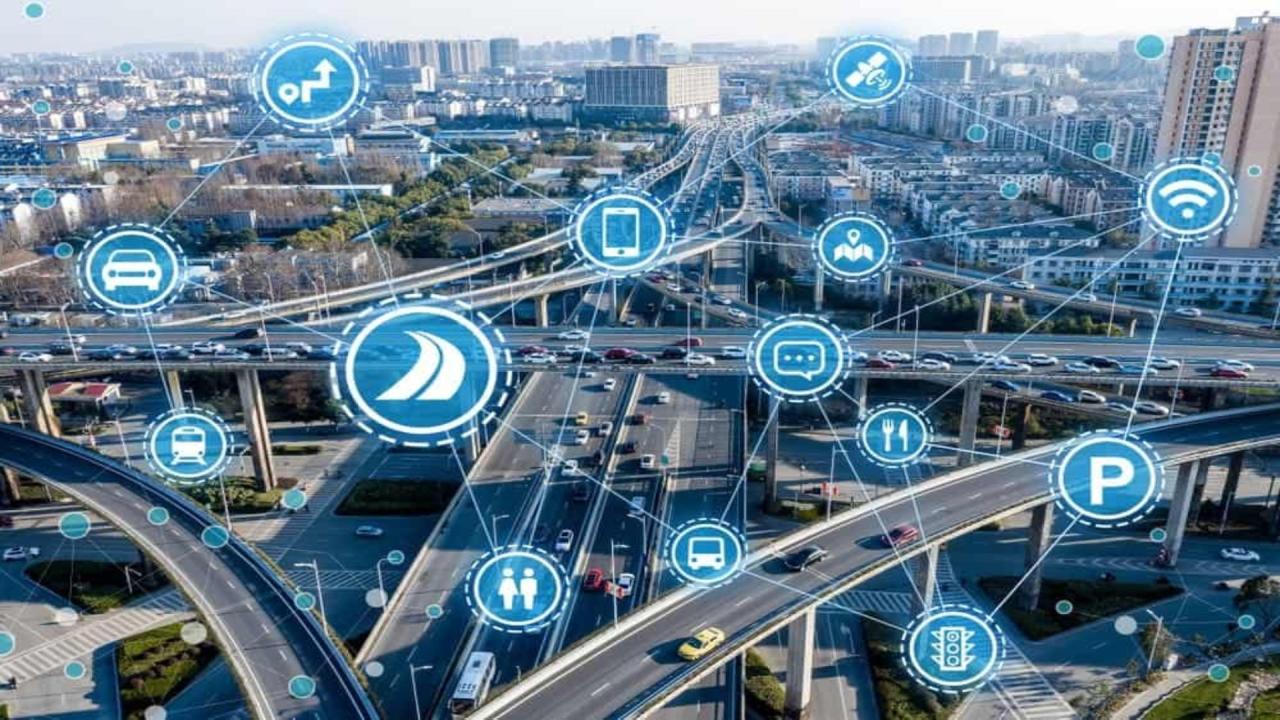Smart city planning sets the stage for a transformative journey towards better urban living, integrating technology and sustainable practices for a brighter future.
As we delve deeper into the components, data-driven decision-making, citizen engagement, and infrastructure development, the blueprint for smart cities unfolds with promising opportunities and challenges.
Importance of Smart City Planning
Smart city planning refers to the strategic development and implementation of technology-driven solutions to enhance the efficiency, sustainability, and quality of life in urban areas. By integrating various smart technologies, data analytics, and communication systems, cities can optimize resources, improve infrastructure, and create a more connected and livable environment for residents.
Key Benefits of Implementing Smart City Planning
- Enhanced Efficiency: Smart city planning allows for the optimization of energy usage, transportation systems, waste management, and other essential services, leading to cost savings and improved resource allocation.
- Sustainability: By leveraging renewable energy sources, smart sensors, and data analytics, cities can reduce their carbon footprint, minimize environmental impact, and promote eco-friendly practices.
- Improved Public Services: Smart technologies enable better delivery of public services such as healthcare, education, safety, and governance, enhancing overall quality of life for residents.
- Enhanced Connectivity: Smart city planning fosters connectivity through IoT devices, smart grids, and digital platforms, enabling seamless communication, collaboration, and information sharing among citizens and stakeholders.
How Smart City Planning Can Improve Urban Living Conditions
- Infrastructure Development: Smart city planning focuses on upgrading and modernizing infrastructure, including transportation networks, utilities, and public spaces, to create a more efficient and sustainable urban environment.
- Data-Driven Decision Making: By collecting and analyzing data from various sources, cities can make informed decisions, identify trends, and address emerging challenges effectively, leading to better urban planning and management.
- Quality of Life: Smart city initiatives aim to enhance the overall quality of life for residents by providing better access to services, promoting safety and security, and fostering a sense of community and well-being in urban areas.
Components of Smart City Planning
Smart city planning involves various essential components that work together to create sustainable and efficient urban environments. These components are crucial in shaping the future of our cities and improving the quality of life for residents.
Role of Technology in Smart City Planning
Technology plays a significant role in shaping smart city planning strategies by providing innovative solutions to urban challenges. From IoT devices and sensors to data analytics and AI, technology enables cities to collect and analyze real-time data for better decision-making and resource management.
Integration of Sustainable Practices
Sustainable practices are a key component of smart city planning initiatives, aiming to reduce environmental impact and promote long-term resilience. By incorporating green infrastructure, renewable energy sources, and efficient transportation systems, cities can create healthier and more livable environments for their residents.
Data-driven Decision Making in Smart City Planning

Data-driven decision making plays a crucial role in smart city planning, as it allows city officials and urban planners to make informed choices based on real-time data and analysis. By leveraging data analytics, cities can optimize resources, improve infrastructure, and enhance the quality of life for residents.
Benefits of Data Analytics in Urban Development
Data analytics can revolutionize urban development in smart cities by:
- Identifying traffic patterns to optimize transportation systems and reduce congestion.
- Monitoring air quality levels to address pollution and promote environmental sustainability.
- Utilizing predictive analytics to forecast future trends and plan accordingly for population growth and economic development.
- Improving emergency response times by analyzing real-time data to deploy resources effectively during crises.
Challenges and Opportunities of Data Utilization in City Planning
While data-driven decision making offers numerous benefits, it also presents challenges and opportunities for smart city planning:
- Challenges:
- Privacy concerns related to the collection and use of sensitive data.
- Data security risks that could compromise the integrity of information.
- Lack of interoperability between different data sources and systems.
- Opportunities:
- Enhanced citizen engagement through data transparency and open access to information.
- Improved decision making through real-time analytics and predictive modeling.
- Efficient resource allocation based on data-driven insights for sustainable urban development.
Citizen Engagement and Participation: Smart City Planning
Citizen engagement plays a crucial role in the success of smart city planning initiatives. By involving residents in decision-making processes, cities can ensure that the solutions implemented are tailored to the needs and preferences of the community. This leads to greater acceptance and support for urban development projects, ultimately contributing to the overall success of smart city initiatives.
Innovative Ways to Involve Residents
- Creating online platforms for feedback and suggestions
- Organizing community workshops and town hall meetings
- Utilizing mobile apps for real-time communication
- Establishing citizen advisory boards or committees
Impact of Citizen Participation
Citizen participation fosters a sense of ownership and empowerment among residents, leading to increased collaboration and cooperation in the implementation of smart city projects.
By incorporating diverse perspectives and local knowledge, cities can develop more inclusive and sustainable solutions that address the unique challenges faced by different communities.
Infrastructure Development in Smart Cities
Infrastructure development plays a crucial role in the successful implementation of smart city planning. It involves the physical structures and facilities needed to support the various smart technologies and initiatives that make a city smart.
Infrastructure Requirements for Smart City Planning
- Robust and reliable communication networks to support IoT devices and data transfer.
- Advanced transportation systems for efficient mobility and reduced congestion.
- Sustainable energy sources and smart grids for efficient energy management.
- Smart buildings with energy-efficient designs and integrated technologies.
- Waste management systems that utilize IoT sensors for optimized collection and recycling.
Role of Sustainable Infrastructure in Smart Cities
Sustainable infrastructure is essential for building smart cities that are resilient and environmentally friendly. It focuses on minimizing resource consumption, reducing carbon footprint, and promoting long-term sustainability.
Case Studies of Cities with Upgraded Infrastructure
| City | Infrastructure Upgrades |
|---|---|
| Barcelona, Spain | Implemented smart water management systems to reduce water wastage and improve conservation. |
| Singapore | Developed a comprehensive public transport system integrated with smart technologies for seamless connectivity. |
| Copenhagen, Denmark | Invested in sustainable energy solutions like wind power and district heating to reduce carbon emissions. |
FAQ Overview
What are the key benefits of implementing smart city planning?
Smart city planning can lead to improved efficiency, sustainability, and quality of life for residents through optimized infrastructure and services.
How can data-driven decision-making enhance urban development in smart cities?
Data analytics can provide valuable insights for city planners to make informed decisions, leading to more effective resource allocation and infrastructure improvements.
Why is citizen engagement important in smart city planning?
Citizen participation ensures that urban development projects align with the needs and preferences of the community, fostering a sense of ownership and collaboration in city planning processes.







